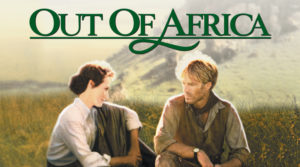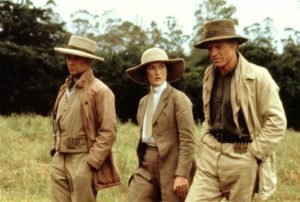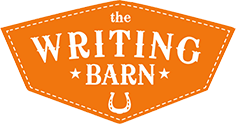Breathing Life Into Beginnings
Introductory Monologue from film based on Karen Blixen’s memoir, Out of Africa
Literary Analysis by Katherine Thole
I recently rewatched Out of Africa, a favorite film of mine, to refresh my memory and sink into the beauty of the film and sincerity of the acting. Over the sweeping sound of the score I found myself riveted by the opening monologue. Immediately, I was overtaken by the complexity and literary brilliance unfolding over just a few brief moments. While just one of many such moments adapted for screen based on Karen Blixen’s memoir, Out of Africa (among other writings) published under the pseudonym of Isak Dinesen, it is a powerful example of stage-setting for storytelling at its finest.

As writers, we are taught the best way to grab a reader is bringing them straight into the middle of the action. The characters we build, complex beings in two-dimensional form, are expected to assume their third and fourth dimensions in the mind’s eye of the reader. That is, if we do our jobs correctly. But the skill it takes to weave together elements of world-building and human forensics with psychology, timing, and the nuance of dropping literary breadcrumbs for the reader to traverse from first to last step in a story—it’s a monstrous feat. Where actors may embody a single or perhaps multiple characters in a story, as writers we embody ALL of our characters, whether or not we have any true common ground with them.
The monologue below (transcribed from film) is a masterful layering of literary styling. It is a beginning that hints at an end. It takes us through a doorway via an unmistakable setting, action and place. Apart from Meryl Streep’s incredible lilting tongue in the film, voice is clear from the start, diving us deep into character from our first moments with her. Furthermore, it hints at a more complex web and frames the story in the context of larger (yet unknown) events. And, quite possibly my favorite part of this monologue and writing is the nod to the story—an equally important instrument in the experience.
He even took the gramophone on safari. Three rifles, supplies for a month and Mozart. We began our friendship with a gift, and later, not long before Zaho, he gave me another—an incredible gift: a glimpse of the world through God’s eye. And I thought, “Yes, I see. This is the way it was intended.” I’ve written about all the others not because I loved them less, but because they were clearer, easier. He was waiting for me there. But I’ve gone ahead of my story—he’d of hated that. Denys loved to hear a story told well. You see, I had a farm in Africa at the foot of the Ngong Hills. But, it began before that. It really began in Denmark. (sound of shots firing, and we are pulled from narration into direct action to begin the story, continued first by a brief narration.) And there I knew two brothers. One was my lover and one was my friend. (up to 1:45 of the intro)

In less than two minutes the introductory narration and monologue sets up the coming film experience with absolute clarity. The viewer remains at arm’s length to the storyteller, listening as the curtain is lifted; following along until the moment nearly two minutes in, when gunshots ring out. Fifteen more words of narration and suddenly the reader disappears into the story along with the storyteller as dialog begins. Yet we reconnect with the storyteller in choice moments throughout the film. And she meets us as the story culminates, to assure us she’s been close at hand on the journey she’s led. I find the film transporting. Admittedly, I have not read the work by Karen Blixen for comparison’s sake…yet. It’s been bumped to the top of my nightstand reading cue.
 Kathrine Thole gets unapologetically stuck in the school and office supply section at the store, ogling the craft supplies and fantasizing about all that has yet to be created. For that matter, she is also compelled to smell all the scented markers. However, Katherine chooses to illustrate with her first love—words. With a career in marketing and public relations, Katherine knows the value of choosing your words carefully and delivering them thoughtfully. In PR the concept of spinning news always bothered her, until it finally occurred to Katherine that the lens you use to view a thing, fundamentally changes the way it is seen. Drawing from a growing toolbox and deep craft work at The Writing Barn, and mining her love for words, Katherine currently writes for children, the will-be dreamers and do-ers. She looks forward to also expanding her writing to teen and adult audiences.
Kathrine Thole gets unapologetically stuck in the school and office supply section at the store, ogling the craft supplies and fantasizing about all that has yet to be created. For that matter, she is also compelled to smell all the scented markers. However, Katherine chooses to illustrate with her first love—words. With a career in marketing and public relations, Katherine knows the value of choosing your words carefully and delivering them thoughtfully. In PR the concept of spinning news always bothered her, until it finally occurred to Katherine that the lens you use to view a thing, fundamentally changes the way it is seen. Drawing from a growing toolbox and deep craft work at The Writing Barn, and mining her love for words, Katherine currently writes for children, the will-be dreamers and do-ers. She looks forward to also expanding her writing to teen and adult audiences.
